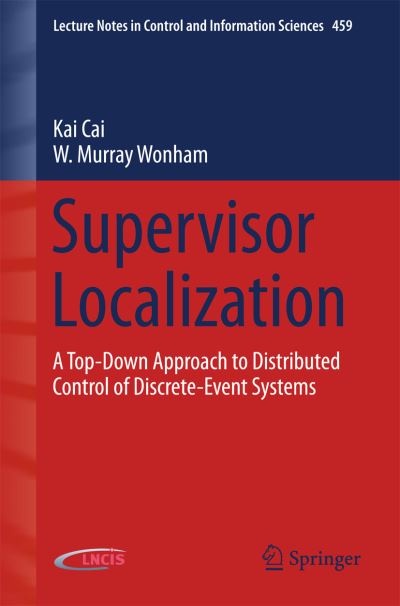
This monograph presents a systematic top-down approach to distributed control synthesis of discrete-event systems (DES). The approach is called supervisor localization; its essence is the allocation of external supervisory control action to individual component agents as their internal control strategies. The procedure is: first synthesize a monolithic supervisor, to achieve globally optimal and nonblocking controlled behavior, then decompose the monolithic supervisor into local controllers, one for each agent. The collective behavior of the resulting local controllers is identical to that achieved by the monolithic supervisor.
The basic localization theory is first presented in the Ramadge-Wonham language-based supervisory control framework, then demonstrated with distributed control examples of multi-robot formations, manufacturing systems, and distributed algorithms. An architectural approach is adopted to apply localization to large-scale DES; this yields a heterarchical localization procedure, which is also demonstrated with benchmark examples. Moreover, a state-based framework, state-tree structures, is exploited for efficient computation of localization. Finally localization is extended to timed DES, which addresses distributed control synthesis with temporal specifications. The authors' TCT software and sourcecode will help the reader to reproduce the results demonstrated in the examples.
Academic researchers and graduate students interested in discrete-event and distributed systems and control will find this book an instructive resource. It will also be useful for researchers in manufacturing, supply-chain and logistics and practitioners in related industries.
| ISBN: | 9783319204956 |
| Publication date: | 8th July 2015 |
| Author: | Kai Cai, W Murray Wonham |
| Publisher: | Springer an imprint of Springer International Publishing |
| Format: | Paperback |
| Pagination: | 199 pages |
| Series: | Lecture Notes in Control and Information Sciences |
| Genres: |
Automatic control engineering Cybernetics and systems theory Management of specific areas |